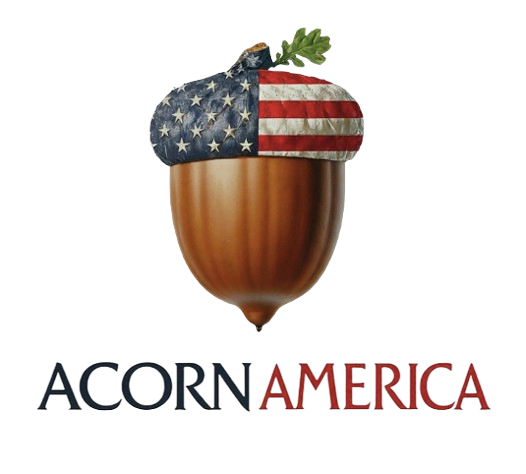Dental grants for low-income adults offer a potential solution to the financial barriers often associated with necessary dental care. These grants provide financial assistance to help cover the costs of various dental procedures, from routine cleanings to more complex treatments.
Understanding the Importance of Dental Grants for Low-Income Adults
For low-income individuals, maintaining good oral health can feel like climbing a steep mountain. While regular dental checkups, cleanings, and treatments are crucial for preventing serious health problems like gum disease and tooth decay, the high cost of dental care creates a significant barrier.
Here's a closer look at the challenges faced by low-income adults:
- Limited financial resources: Dental procedures can be expensive, often exceeding the budgets of low-income individuals. Even basic care like cleanings can feel financially out of reach, leading to neglected dental issues and potentially more expensive treatments down the line.
- Lack of dental insurance: Many low-income adults lack dental insurance, leaving them responsible for the full cost of treatment. This makes it difficult to justify preventative care, leading to a cycle of delayed treatment and worsened dental problems.
- Dental provider scarcity: Low-income neighborhoods often have a shortage of dentists and dental clinics. This lack of access to convenient care creates a significant hurdle for low-income individuals seeking dental services.
- Transportation challenges: Transportation can be a major obstacle, especially for those without reliable vehicles or access to public transportation. This can make it difficult to reach dental appointments, further delaying needed care.
Eligibility Criteria
Securing a dental grant can be a lifeline for many, but understanding the eligibility criteria is essential. While specific requirements vary between programs, general guidelines include:
Income Requirements for Dental Grant Programs
- Low-income status: Most dental grants are designed for individuals with limited financial resources. You'll typically need to demonstrate income below a certain threshold to qualify.
- Proof of income: Be prepared to provide documentation of your income, such as tax returns or pay stubs.
- Household size: Some programs consider household size when determining income eligibility.
Additional Eligibility Criteria
Beyond income, other factors may influence your eligibility:
- Age: Some grants target specific age groups, such as children, seniors, or working adults.
- Residency: Many programs are limited to residents of a particular state or region.
- Citizenship: While not always a requirement, some grants may prioritize U.S. citizens or legal residents.
- Dental condition: Certain grants focus on specific dental issues, such as oral surgery or dental implants.
- Employment status: Some programs may have employment requirements or restrictions.
Important Note: Eligibility criteria can vary significantly between different grant programs. It's essential to research individual grants carefully to determine your qualifications.
How to Find Dental Grants
To increase your chances of finding a suitable dental grant, consider these resources:
- Government agencies: State and local government programs often offer dental assistance.
- Non-profit organizations: Many charitable organizations provide dental grants.
- Dental schools: Some dental schools offer low-cost or free dental care through student clinics.
- Community health centers: These centers may offer financial assistance for dental services.
Government Programs and Benefits for Dental Care
Medicaid
Medicaid is a joint federal and state program that provides health coverage for low-income individuals and families. While dental coverage varies by state, Medicaid often covers dental services for children and may offer limited coverage for adults.
Children's Health Insurance Program (CHIP)
CHIP provides health coverage for uninsured children whose families earn too much to qualify for Medicaid. Dental coverage is typically included in CHIP benefits.
- CHIP Website: (Information about CHIP is usually found within state Medicaid websites)
Important Notes:
- State Variations: The specifics of dental coverage under Medicaid and CHIP vary significantly from state to state. It's essential to contact your state's Medicaid or CHIP agency for accurate information.
- Income Eligibility: Both Medicaid and CHIP have income eligibility requirements. You can usually find eligibility information on your state's Medicaid or CHIP website.
- Adult Dental Coverage: While dental coverage for children is generally good under Medicaid and CHIP, coverage for adults can be limited or nonexistent in some states.
To find specific information for your state, you can search for "Medicaid [your state]" or "CHIP [your state]" on your internet search engine.
Additional Resources:
- Benefits.gov: Provides information on various government benefits, including dental care resources.
- Health Resources and Services Administration (HRSA): Offers information on community health centers that provide dental services.
Community Health Centers and Dental Clinics for Low-Income Patients
Community Health Centers (CHCs) are a vital resource for individuals seeking affordable or free dental care. They provide a range of services, including preventative care, treatment for dental emergencies, and more complex procedures.
Finding a Community Health Center
To find a community health center near you, utilize the following resources:
- Health Resources and Services Administration (HRSA): This federal agency supports community health centers across the country. Their website allows you to search for centers by location.
Additional Resources
While not specifically focused on dental care, these organizations can provide valuable information and resources:
- United Way: Many United Ways offer assistance programs, including referrals to dental clinics.
- Local Department of Health: Your local health department can provide information about dental clinics and other resources in your area.
Step-by-Step Guide to Applying for Dental Grants
Securing a dental grant can significantly alleviate the financial burden of dental care. Here’s a step-by-step guide to help you navigate the application process:
Step 1: Research Available Grants
- Identify potential grant providers: Look into government agencies, non-profit organizations, and dental schools that offer dental grants.
- Understand eligibility criteria: Carefully review the requirements for each grant, including income limits, age restrictions, residency, and specific dental needs.
- Prioritize grants: Make a list of grants that align with your situation and prioritize them based on eligibility and potential award amounts.
Step 2: Gather Required Documentation
- Proof of income: Gather tax returns, pay stubs, or other income verification documents.
- Identification: Prepare a copy of your government-issued ID.
- Dental records: Collect relevant dental records, including X-rays and treatment plans.
- Proof of residency: Provide documents like a utility bill or driver's license to verify your address.
Step 3: Complete the Application
- Read instructions carefully: Understand the application process and requirements before starting.
- Provide accurate information: Ensure all details are correct and complete to avoid delays or rejection.
- Be thorough: Answer all questions completely and honestly.
- Proofread carefully: Check for errors in grammar and spelling.
Step 4: Submit Your Application
- Follow submission guidelines: Adhere to the specified method of submission (online, mail, or in-person).
- Keep copies: Retain copies of your application and supporting documents for your records.
- Follow up: If required, follow up with the grant provider to confirm receipt of your application.
Step 5: Follow Up
- Check application status: Inquire about the status of your application if you haven't received a response within the expected timeframe.
- Prepare for interviews or additional documentation: Be ready to provide any requested information or attend interviews.
- Understand the appeal process: Familiarize yourself with the grant provider's appeal process in case your application is denied.
Additional Tips
- Start early: Begin the application process well in advance of deadlines.
- Be persistent: Applying for multiple grants increases your chances of success.
- Seek assistance: Don't hesitate to ask for help from friends, family, or community organizations.
Common Mistakes to Avoid When Applying for Dental Grants
To increase your chances of securing a dental grant, it's essential to avoid common pitfalls. Here are some mistakes to watch out for:
1. Not Thoroughly Researching the Grant
- Overlooking eligibility criteria: Ensure you meet all qualifications before applying.
- Misunderstanding grant purpose: Make sure the grant aligns with your specific dental needs.
2. Incomplete or Inaccurate Applications
- Missing required documents: Gather all necessary paperwork before starting the application.
- Providing incorrect information: Double-check all details for accuracy.
- Poorly written essays or statements: Clearly articulate your needs and how the grant will help.
3. Failing to Highlight Need
- Not emphasizing financial hardship: Clearly explain your financial situation and how it impacts your ability to access dental care.
- Underestimating the impact of dental issues: Detail how poor dental health affects your overall well-being.
4. Missing Deadlines
- Not prioritizing deadlines: Allocate sufficient time for the application process.
- Overlooking time zones: Be aware of different time zones when submitting online applications.
5. Poor Follow-Up
- Not checking application status: Follow up if you haven't heard back within a reasonable timeframe.
- Failing to provide additional information: Respond promptly to requests for further documentation.
6. Not Applying to Multiple Grants
- Limiting your options: Increase your chances of success by applying to several grants.
By avoiding these common mistakes, you can significantly improve your chances of securing a dental grant to help cover the cost of your dental care.
Frequently Asked Questions
What are dental grants for low-income adults?Dental grants for low-income adults are financial awards designed to assist individuals with limited financial resources in covering the cost of dental care. These grants can help with various procedures, from routine cleanings to more complex treatments like implants or dentures.
Who is eligible for dental grants?Eligibility criteria for dental grants vary depending on the specific program. However, most programs target low-income individuals or families who meet certain income guidelines. Other factors such as age, residency, and specific dental needs may also influence eligibility.
How do I find dental grants?There are several ways to find dental grants. Government agencies, non-profit organizations, and dental schools often offer these programs. You can search online using keywords like "dental grants for low-income adults" or contact local dental clinics for information.
What kind of dental work do dental grants cover?Dental grants can cover a wide range of dental procedures. This may include cleanings, fillings, extractions, dentures, crowns, bridges, and even dental implants. The specific coverage depends on the grant program and the individual's needs.
How much money can I get from a dental grant?The amount of financial assistance provided by dental grants varies significantly. Some grants cover a portion of the dental costs, while others may cover the entire treatment. The specific amount awarded depends on the grant program and the individual's financial situation.
How do I apply for a dental grant?The application process for dental grants typically involves completing an application form and providing required documentation, such as proof of income, identification, and dental records. The specific application process may vary depending on the grant provider.
How long does it take to get a dental grant?The processing time for dental grant applications can vary depending on the grant program and the volume of applications. It's essential to check the specific timeline provided by the grant provider.
Can I get help with the application process?Many organizations that offer dental grants provide assistance with the application process. You can contact the grant provider directly to inquire about available support. Additionally, local social service agencies or dental clinics may be able to offer guidance.
What if I don't qualify for a dental grant?If you don't qualify for a dental grant, there are other options to consider. These may include dental insurance plans, payment plans offered by dentists, or community health centers that provide low-cost dental care.
Are there any government programs that help with dental costs?Yes, there are government programs that can help with dental costs. Medicaid and the Children's Health Insurance Program (CHIP) offer dental coverage for eligible individuals. However, coverage varies by state, and eligibility requirements must be met.





